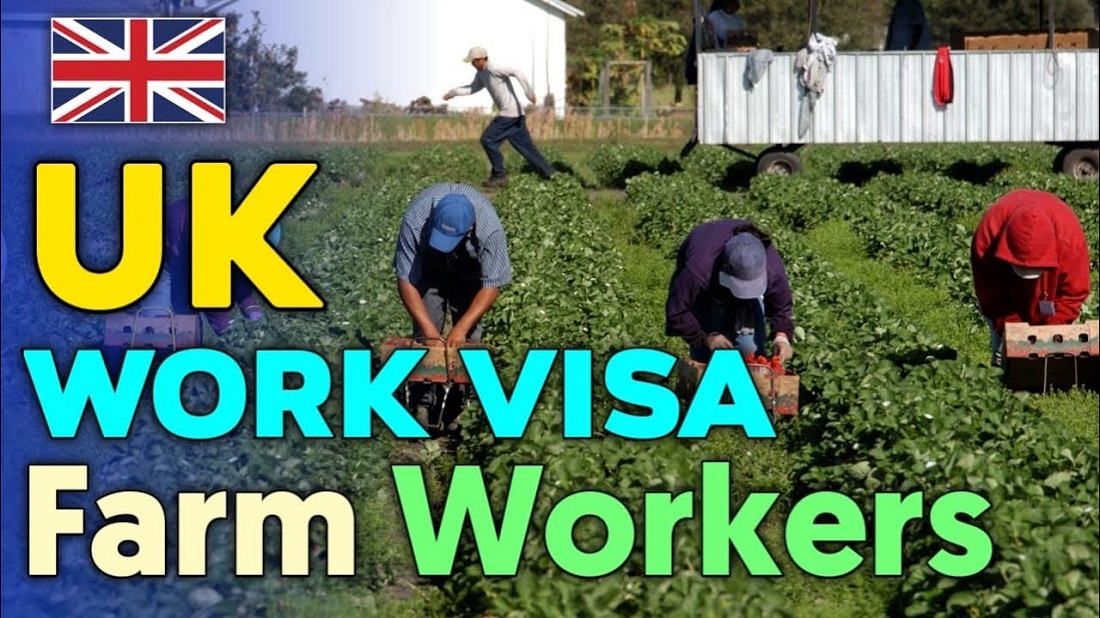If you’re considering moving to Canada for work, farm jobs offer a great opportunity. Many farmers and agricultural businesses in Canada are actively looking for skilled workers to fill labor shortages. Canada’s immigration programs are designed to help individuals like you find stable employment in the agricultural sector, allowing you to build a life in this vibrant country.
Working on a farm in Canada can provide not only competitive wages but also a chance to experience the country’s beautiful landscapes and welcoming communities. There are various immigration pathways available specifically for agricultural workers, making it easier for you to secure meaningful employment and residency.
Whether you’re an experienced farm worker or new to the field, understanding these opportunities can help you take the next steps toward your future in Canada. Now is a great time to explore how you can join the agriculture workforce in a country that values its farmers and food producers.
Overview of Farming in Canada
Farming in Canada plays a significant role in the economy and daily life. The agricultural sector not only supports local communities but also contributes to international trade. Understanding its economic impact and the main products will give you a clearer picture.
Economic Impact of Agriculture
Agriculture is a cornerstone of Canada’s economy. It accounts for about 1.6% of the country’s total GDP. This might seem small, but the sector’s influence is vast, creating thousands of jobs.
From direct farming jobs to those in processing and distribution, the ripple effect is significant. The industry also supports related sectors like transportation and retail. In 2021, exports of Canadian agricultural products reached over $35 billion, showcasing the importance of farming in global markets.
Moreover, agriculture contributes to rural development. Farming preserves local culture and provides essential goods, making it vital for community sustainability.
Main Agricultural Products
Canada produces a diverse range of agricultural products. The main crops include:
- Wheat: Canada is one of the world’s largest wheat exporters.
- Canola: Known for its oil, canola is a leading crop in Canada.
- Corn: Used for both livestock feed and biofuel.
- Barley: Essential for beer production and livestock feed.
Livestock farming is also prominent, with beef and dairy being key sectors. The distribution of farms varies by province, with Alberta known for cattle and Ontario focusing on fruit and vegetable production.
This variety helps meet both domestic needs and international demand. Understanding these products can help you navigate opportunities in the agricultural sector.
Immigration Paths for Farm Workers
If you want to work as a farm worker in Canada, there are several immigration options available. Understanding these pathways will help you choose the best option for your situation. Here are three main programs to consider.
Temporary Foreign Worker Program
The Temporary Foreign Worker Program (TFWP) allows Canadian employers to hire foreign workers for specific jobs when no local candidates are available. This program is crucial for the agricultural sector, especially during peak seasons.
To apply, your employer must first obtain a Labour Market Impact Assessment (LMIA) to prove they need a foreign worker. Once approved, you can apply for a work permit. The permit is usually valid for a limited duration, often tied to the job offer.
It’s important to remember that this program does not lead directly to permanent residency. However, it provides an excellent opportunity to gain Canadian work experience.
Agri-Food Immigration Pilot
The Agri-Food Immigration Pilot is designed for foreign workers in the agri-food sector to become permanent residents. This program targets specific occupations within the industry, such as meat processing and mushroom production.
To qualify, you need at least one year of work experience in one of the eligible occupations. Additionally, you must have a job offer from a Canadian employer in the same field.
This pilot program aims to fill labor shortages while offering a pathway to permanent residency for skilled workers in the agri-food sector.
Provincial Nominee Programs
Provincial Nominee Programs (PNPs) enable provinces in Canada to select immigrants based on their specific labor needs. Many provinces have streams dedicated to agricultural workers.
To apply through a PNP, you generally need a job offer from an employer in that province. Some provinces focus on farmers or farm workers, which can speed up the immigration process.
If nominated by a province, you can apply for permanent residency through the federal government. This pathway not only focuses on meeting labor demands but also encourages settlement in rural areas.
Eligibility and Requirements
To work and immigrate to Canada in the agriculture sector, certain eligibility criteria must be met. These include specific work experience, language skills, and financial stability. Understanding these requirements is crucial for a successful application.
Work Experience and Skills
You need to demonstrate relevant work experience in agriculture or farm-related jobs. Typically, candidates should have at least one year of full-time work experience in an eligible occupation.
Eligible jobs can include positions like farm manager, general farm worker, or those in specialty crops.
It is important that your experience matches the requirements of the job offer you receive.
Providing references and detailed job descriptions can strengthen your application.
Language Proficiency
Language skills are essential for successful integration and communication in Canada. You must prove your ability to understand and communicate in English or French.
Generally, a minimum score on a recognized language test, such as IELTS or CELPIP for English, or TEF for French, is required.
You will need to achieve scores that meet or exceed the minimum requirements for your specific immigration program.
Improving your language skills can enhance your chances of finding employment in Canada.
Financial Requirements
You must show that you have enough money to support yourself and your family upon arrival in Canada.
This is crucial, even if you have a job offer. The amount required varies based on the number of family members.
You need to provide proof of funds, which can include bank statements, property ownership, or other financial assets.
Having sufficient financial resources ensures that you can settle comfortably while starting your new life in Canada.
Application Process for Farm Jobs
Finding a farm job in Canada involves several important steps. From securing a job offer to preparing for your arrival, each part of the process is crucial for your success.
Job Offer and LMIA
To start, you need a job offer from a Canadian employer. This is a critical step as it confirms that a position is available for you. The employer must apply for a Labour Market Impact Assessment (LMIA), which shows that no Canadian citizens or permanent residents are available to fill the job.
Once the LMIA is approved, it will be sent to you. This document allows you to apply for a work visa. Ensure that you keep a copy for your records, as you will need it for your visa application.
Visa Application and Documentation
With your job offer and LMIA in hand, you can begin the visa application process. You will need to gather several documents. Typical requirements include:
- A copy of your LMIA
- Your job offer letter
- Proof of relevant work experience
- Identification documents
You will submit these documents as part of your work permit application to Immigration, Refugees and Citizenship Canada (IRCC). It’s essential to fill out the application accurately to avoid delays.
Processing times can vary. Check the IRCC website for current processing times and updates on your application status.
Post-arrival Procedures
After arriving in Canada, your first steps are essential. Make sure to have your work permit and job offer letter ready for review at the border.
Once settled, you will need to obtain a Social Insurance Number (SIN). This number is crucial for working legally in Canada. You can apply for a SIN through Service Canada.
Additionally, familiarize yourself with your employer’s policies and local laws. This helps ensure a smooth transition and a positive working experience. Engaging with co-workers and getting involved in community events can also enhance your integration.


